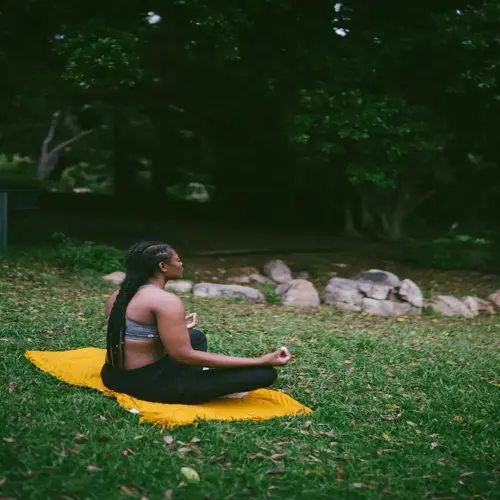Can mindfulness help with anxiety?

Written by
Tran Quang
Reviewed by
Prof. Graham Pierce, Ph.D.Mindfulness is a great antidote to anxiety because it improves your relationship with worry thoughts. Rather than trying to fight against anxious feelings, you learn to notice them with non-judgmental awareness, thus breaking the cycle of panic by rooting yourself in physical sensations, such as the rhythm of your breathing.
Over time, continual practice rewires the brain's reaction to stress. The amygdala, often referred to as the brain's alarm system, responds less to perceived threats. There is a space between the trigger and the response. This creates emotional resilience but does not remove anxiety, but makes it manageable.
Breath Anchoring
- Focus on exhale duration during anxious moments
- Count breaths during panic onset
- Place hand on belly to feel physical rhythm
Sensory Grounding
- Identify five objects in your environment
- Notice four textures you can feel
- Name three sounds without judgment
Thought Observation
- Visualize worries as passing clouds
- Label thoughts 'worrying' without engagement
- Return to present sensations after noting
Use these techniques at the first hint of anxiety, and you will feel immediate relief. When worry creeps in, pause and take three intentional breaths before speaking or acting on the concern. Notice where your body physically holds the tension. This creates a distance or cushion between the stimulus and the response, significantly reducing the intensity of the anxiety.
Consistency leads to lasting change, not just a moment of relief. Practice breath awareness daily, even in the absence of anxiety. This will increase your ability to find that sense of calm in the midst of crisis. After a week or so, you will notice you are less reactive to challenging situations that would have affected you in the past.
Read the full article: Mindfulness for Beginners: Your Journey Starts Here

